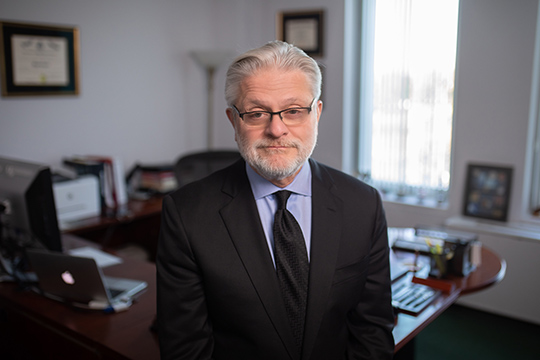
November 7, 2024 – Veterans often face silent battles long after their military service has ended. From post-traumatic stress disorder (PTSD) and depression to feelings of loneliness, many veterans struggle with their mental health. Frank A. Ghinassi, PhD, ABPP, senior vice president of Behavioral Health Services at RWJBarnabas Health and president and CEO of Rutgers University Behavioral Health Care, shares impactful ways that everyone can contribute to helping veterans feel supported in their mental health journey.
Understand the scope of the problem. In 2021, over 6,000 veterans took their own lives, including 53 in New Jersey alone. Recognizing veterans’ struggles is the first step in providing effective support and reducing stigma. Veterans struggling with the aftermath of their military involvement may experience:
- Feelings of isolation and hopelessness
- Anger, irritability or frustration
- Loss of interest in activities that used to be enjoyable
- Relationship problems
- Frequent reminders of past traumatic events
- Difficulty eating or sleeping
- Drug and alcohol use
- Anxiety, depression or post-traumatic stress disorder (PTSD)
Foster a community of support and engage in active listening. One of the most significant losses veterans experience is the sense of camaraderie they had in service. Community groups, social events, or simply reaching out to listen can help veterans feel understood and valued. Often, veterans just want someone to listen to their stories and understand their experiences. If a veteran feels comfortable sharing, let them talk without judgment or interruption—it can be incredibly supportive and meaningful.
Help connect veterans with mental health resources. Veterans often hesitate to seek help due to the stigma around mental health. Remind them that reaching out is a sign of strength. Their resilience doesn’t end with military service—facing mental health challenges head-on is another way to demonstrate their courage. Some trusted resources include:
- Vets4Warriors, a nonprofit housed at the Rutgers University Behavioral Health Care National Call Center, is a nationwide nonprofit that provides active-duty military and veterans with 24/7 confidential peer support.
- The Veterans Crisis Line provides active-duty service members and their families and friends 24/7 support. Service members, including members of the National Guard and Reserves, along with their loved ones, can Dial 988 and Press 1, chat online at MilitaryCrisisLine.net, or send a text to 838255 to receive free, confidential support.
- The National Suicide Prevention Lifeline provides free and confidential emotional support to people in suicidal crisis or emotional distress 24 hours a day, 7 days a week, across the United States. You can call, text, or chat 988.
RWJBarnabas Health’s Behavioral Health Services work in coordination with veteran-related- community partners and Rutgers University Behavioral Health Care to provide service members with support Learn more: Military: Active Duty, Veterans and Families